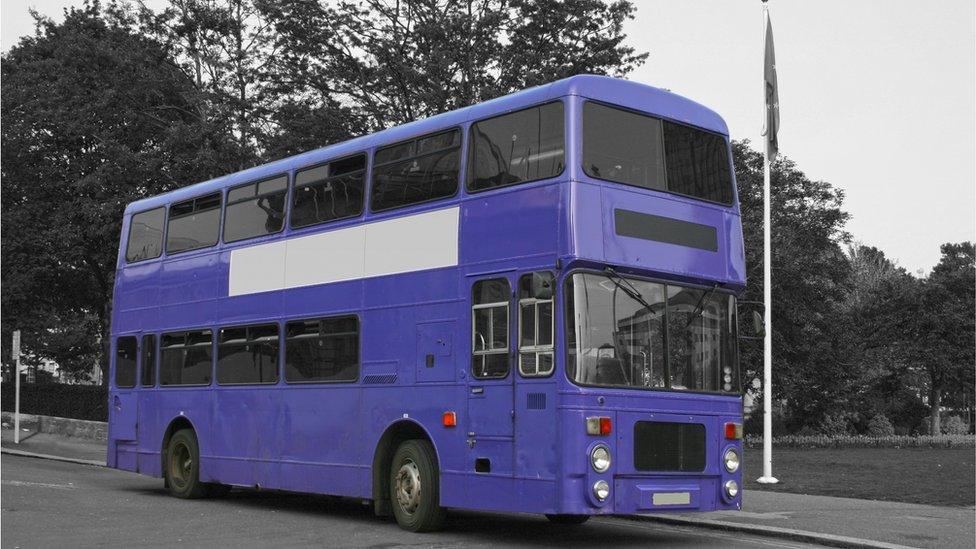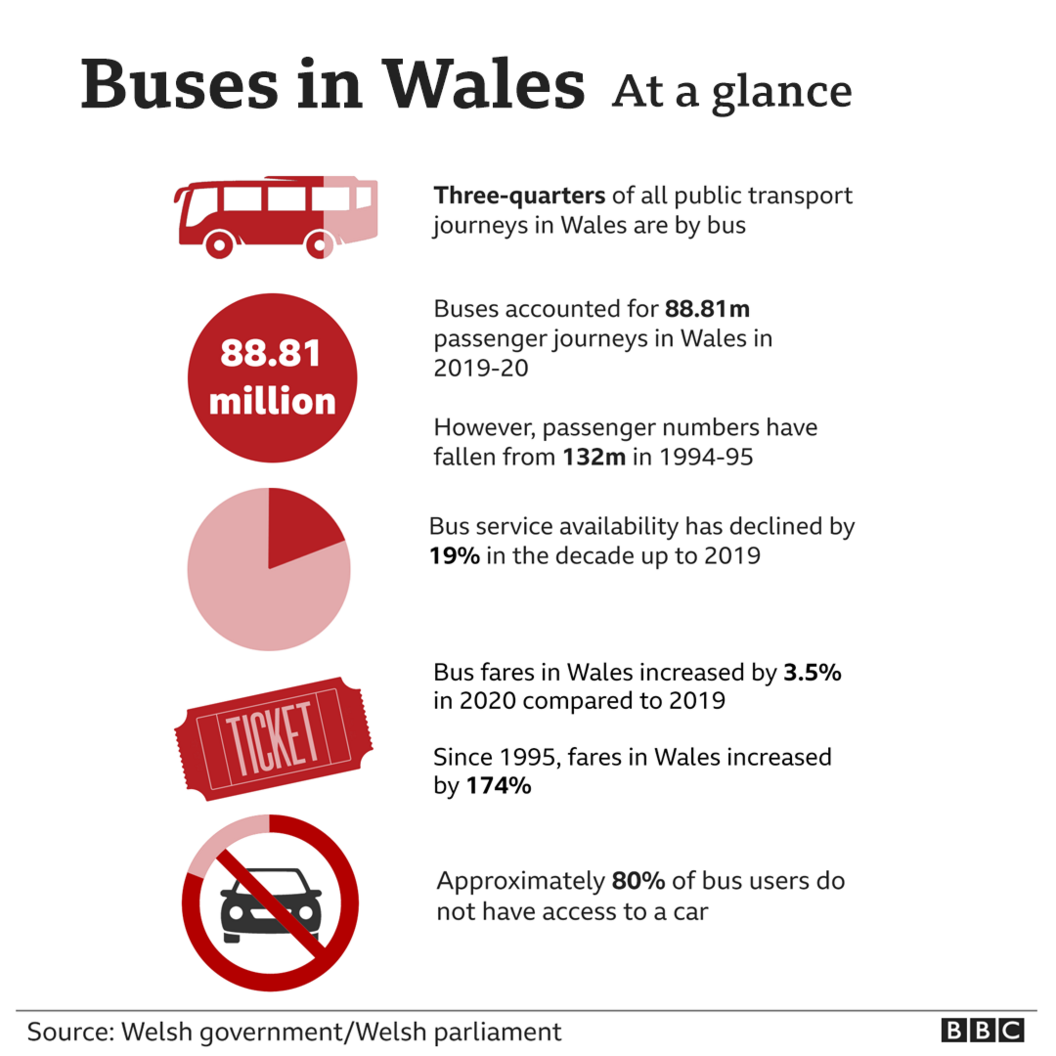Extra £48m for Covid pandemic-hit Welsh bus industry
- Published

Passenger numbers are still nowhere near pre-Covid levels
The bus industry in Wales is to receive an extra £48m from the Welsh government to help it recover from the pandemic and cope with rising running costs.
Ministers say the "gap funding" until next April will allow operators to keep vital services running.
Passenger numbers fell by about 90% during the Covid crisis, with services maintained through increased subsidies.
Deputy Climate Change Minister Lee Waters said passenger figures are now between 50 to 70% of pre-Covid levels.
The Welsh government said it had now provided more than £150m of additional funding to the industry in total since the start of the pandemic.
Opposition Conservatives said they doubted the extra money would reverse a "deterioration in services", while Plaid Cymru called for improvements to make buses a viable form of transport across all of Wales.
In March, ministers revealed plans for a major overhaul that could eventually see one bus network and a single ticketing system across Wales.
Private firms would bid to run services and ministers would have a bigger say in how the system works.
On Wednesday, Mr Waters said bus operators are currently "struggling with reduced revenue and contending with the latest challenges of rising fuel and operating costs".
"The funding I've announced today will provide a short-term solution to help the industry to begin to recover from the challenges it has and continues to face whilst we develop a longer-term solution to tackle the gradual decline in passengers over the years," he said.


Welsh Conservative transport spokeswoman Natasha Asghar said she was "incredibly concerned in the deterioration in services across Wales which has been plummeting before the pandemic hit, and I am yet to be convinced that this funding will reverse this trend".
"Ministers need to make sure this funding ensures the regular provision of routes in Wales, ensuring reliable and affordable alternatives to private transport," she said.
Delyth Jewell, who speaks for Plaid Cymru on transport, said buses were not a viable form of transport for "too many parts of Wales".
Buses needed to become "fully accessible and affordable for everyday use, using a fleet that is fully electric or at least low emission, with local services joined up with other forms of transport like trains, cycle tracks and footpaths", she said.
What are those long-term plans?
Until the 1980s, much of the British bus network was run by publicly-owned companies with local monopolies, until services outside London were opened up to competition by former Prime Minister Margaret Thatcher's Conservative government.
Since then, many less profitable routes have been scrapped.
Under the Welsh government's proposals, firms would bid for the right to run certain services and could be asked to run buses on less lucrative routes in return.
Currently, bus firms are not allowed to cross-subsidise services, with councils providing money for routes which do not generate a profit.
Local government would also be given the right - taken away in the 1980s - to set up new local government-owned companies to run buses, or even run buses in-house.
Mr Waters said there would be an update on how the plans are developing later this year.